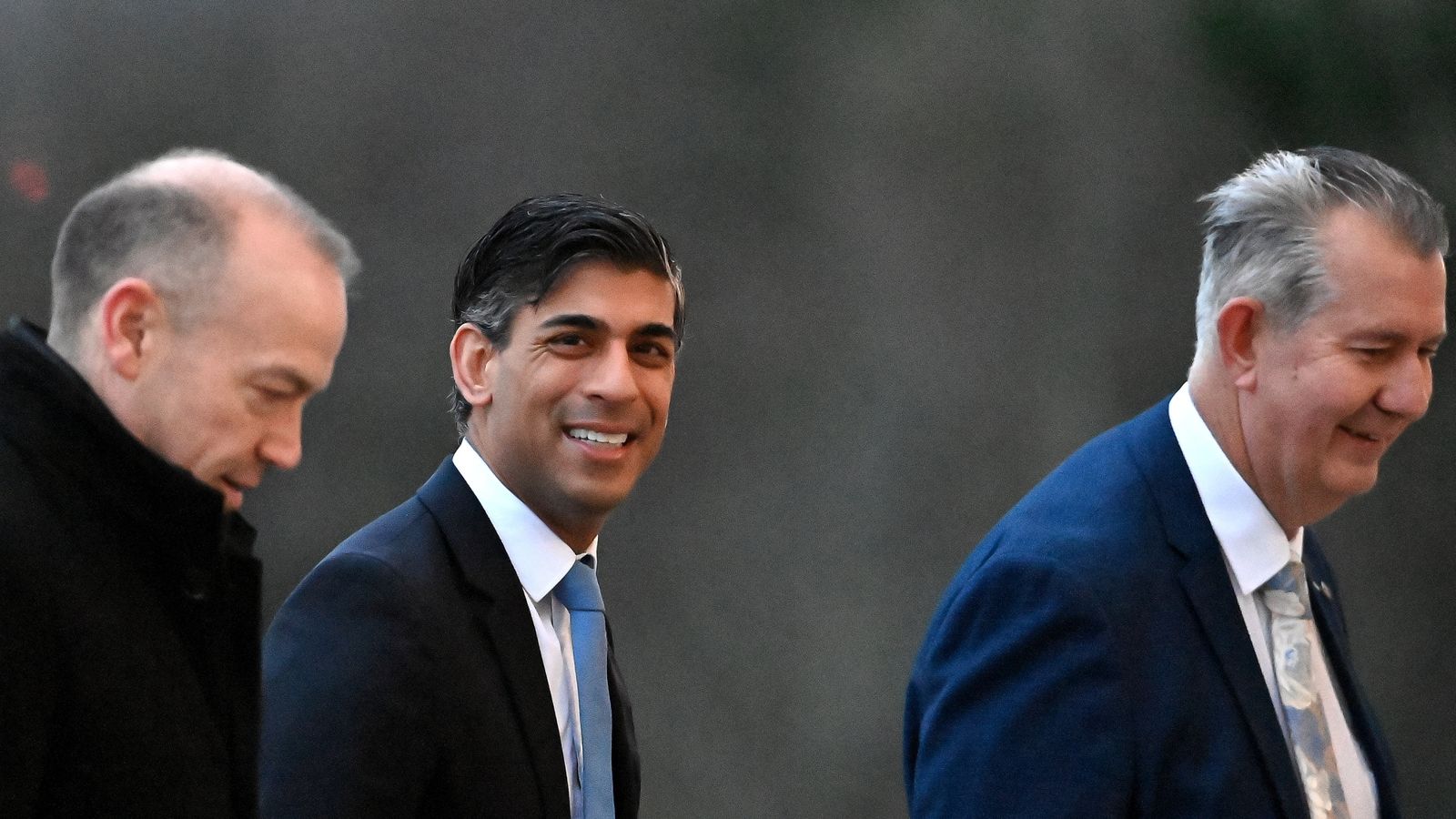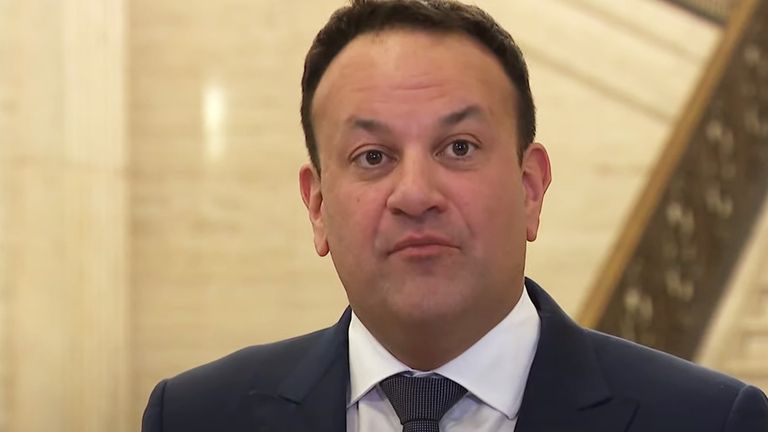Rishi Sunak has insisted the priority in Northern Ireland is “day-to-day” governing rather than “constitutional change”.
The prime minister was in Northern Ireland to celebrate the restoration of power-sharing in the nation.
This came after changes were made to the post-Brexit settlement, reducing the checks on goods travelling between Northern Ireland and the rest of the UK.
Follow live: PM meets Northern Ireland’s leaders
The Democratic Unionist Party (DUP) had held up the formation of an executive since 2022 due to their opposition to the situation.
This executive is the first to feature a nationalist as first minister, with Sinn Fein’s Michelle O’Neill taking that role.
The deputy first minister – the DUP’s Emma Little-Pengelly – holds equal responsibility and power to Ms O’Neill under the Good Friday Agreement.
Mr Sunak said: “I had very constructive meetings this morning with the executive, with political leaders across Stormont, and it is a historic and important day for the country, because Northern Ireland’s politicians are back in charge, making decisions on behalf of their people, which is exactly how it should be.
“Now, our new deal gives them more funding and more powers than they have ever had, so they can deliver for families and businesses across Northern Ireland. And that’s what everyone’s priority is now.
“It is not constitutional change, it is delivering on the day-to-day things that matter to people.”
Leo Varadkar, the Irish prime minister, was also in Stormont today.
He said: “I think the priority for any new executive in any government, in any country, has to be the day-to-day concerns of people.
“So, as you know, there are very long waiting lists in Northern Ireland – not a problem unique to Northern Ireland by any means.
“We have similar problems to others – issues around the economy and around public sector pay – and certainly the sense that I got from the first minister and deputy first minister and the executive is very keen to get stuck into their briefs.”
He repeated Mr Sunak’s words, saying that the focus of today should be on the re-establishment of the executive rather than “constitutional questions”.
Speaking over the weekend, Ms O’Neill said she could see a vote on Irish unification happening within the next decade.
Click to subscribe to Politics at Jack and Sam’s wherever you get your podcasts
In an article in the Belfast Telegraph this morning, Mr Sunak said: “The shape of Northern Ireland’s future is now clear: devolved government, within the United Kingdom, for as long as the majority wish it.”
He added: “The government will always give full and equal respect to constitutional nationalism and the desire for a united Ireland, pursued through peaceful and democratic means – just as we recognise that there are a growing number of people who do not define their aspirations by reference to one tradition or another.”
As part of the attempts to restore the executive, the UK government made a £3.3bn “final offer” to Northern Ireland.
Mr Sunak said today that this has “been widely recognised as being significant and generous”.
He added that it was focused on “long-term sustainability, ensuring that Northern Ireland has the funding it needs, not just for today to deal with the immediate challenges, but it is on a path to be able to provide high-quality public services into the future”.
Speaking at a meeting with Ms O’Neill and Ms Little-Pengelly, Mr Varadkar said: “It’s great that the institutions are back up and running again, we want the executive to be a success and to last, and keen to help in any way we can but not to interfere, but definitely to help, and keen to see the North South Ministerial Council up and running again as soon as possible, and the British Irish Council as well of course.”

